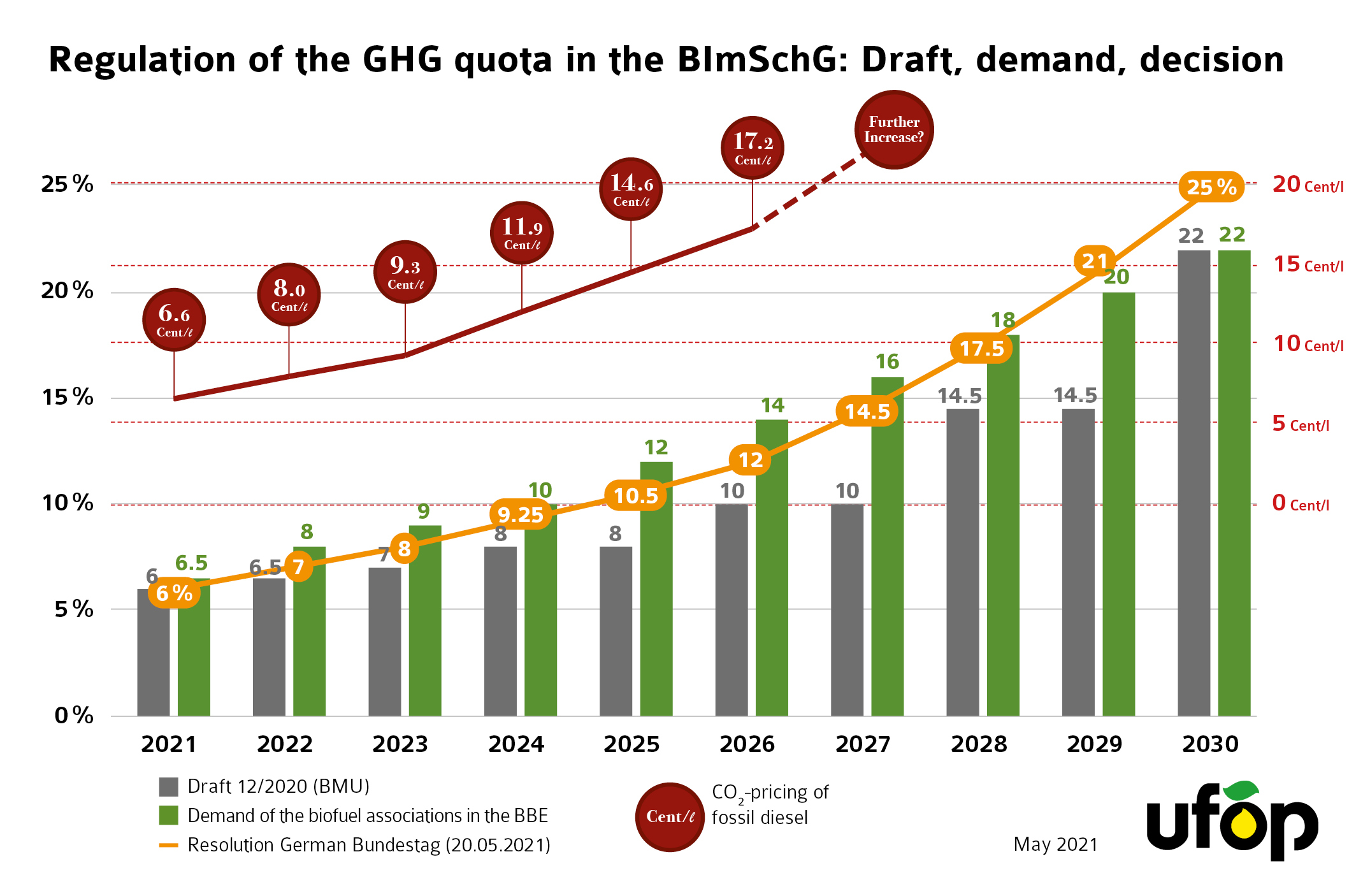
Bundestag clears the way for more climate protection in transport
UFOP welcomes decision on further development of GHG quota
Berlin, 21.05.2021. The Union for the Promotion of Oil and Protein Plants e. V. (UFOP) welcomes the German Bundestag's decision to increase the greenhouse gas reduction obligation for fuels. The law provides for an even increase from 6% today to 7% in 2022 and to 25% in 2030. UFOP had repeatedly called for a more ambitious GHG quota system. The aim was to give domestic agriculture and the biofuel industry more planning certainty in the medium term, while at the same time giving new options such as biofuels from residues, synthetic fuels and hydrogen opportunities for market entry through a technology-open approach.
Time is of the essence when it comes to climate protection, so in addition to e-mobility, all sustainable fulfillment options available today must contribute to decarbonizing the existing fleet by 2030. Increasing the GHG- quota thus puts the vehicle tank in the spotlight. The legislative resolution therefore simultaneously sets the signal for allowing higher blending ratios for biodiesel in heavy-duty transport and bioethanol in passenger cars. A corresponding amendment to the 10th Federal Immission Control Ordinance (BImSchV) would create the necessary flexibility for companies to meet the rising GHG quota in the competition for alternative fuels that are as GHG-efficient as possible, the UFOP emphasizes. The corresponding European fuel standards are available for B 10, B 30 and, in the foreseeable future, for E 20.
The UFOP points out that sustainably certified biofuels are fully taxed when used in blending. However, biofuels are not subject to the CO2 pricing of fossil fuels, which will increase in the coming years. The respective blending proportion therefore reduces the additional price increase that is to be expected in the future due to the steadily rising CO2 price of fossil fuels, emphasizes the UFOP. However, environmental protection does not come free of charge. Like fossil fuels or renewable electricity, biofuel prices are also subject to market conditions.
Download Picture


 Union zur Förderung von Oel- und Proteinpflanzen E.V.
Union zur Förderung von Oel- und Proteinpflanzen E.V.